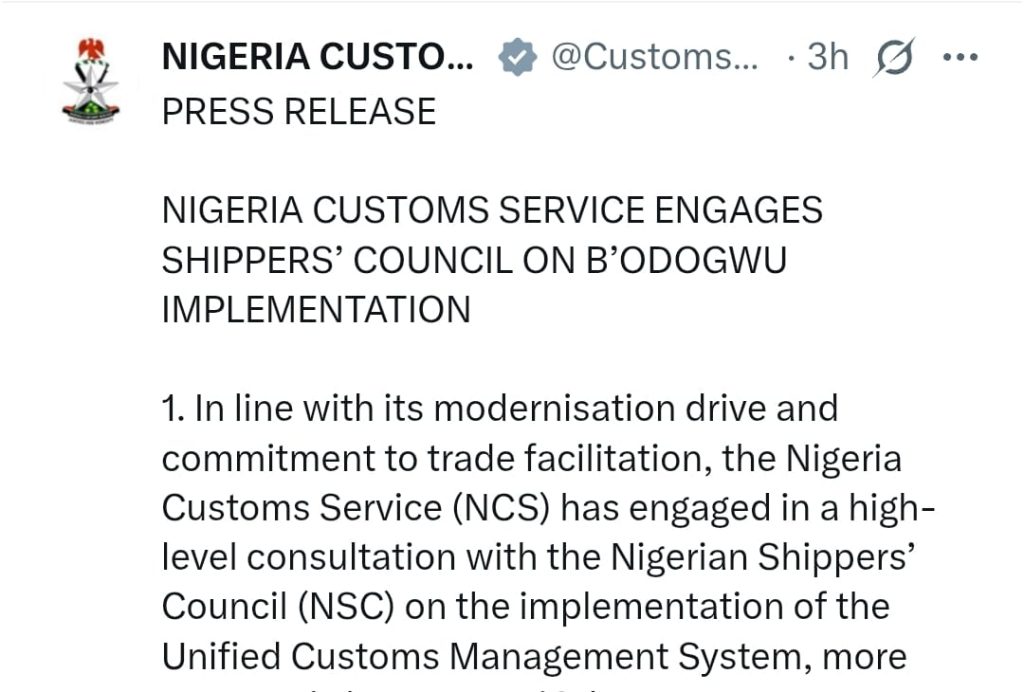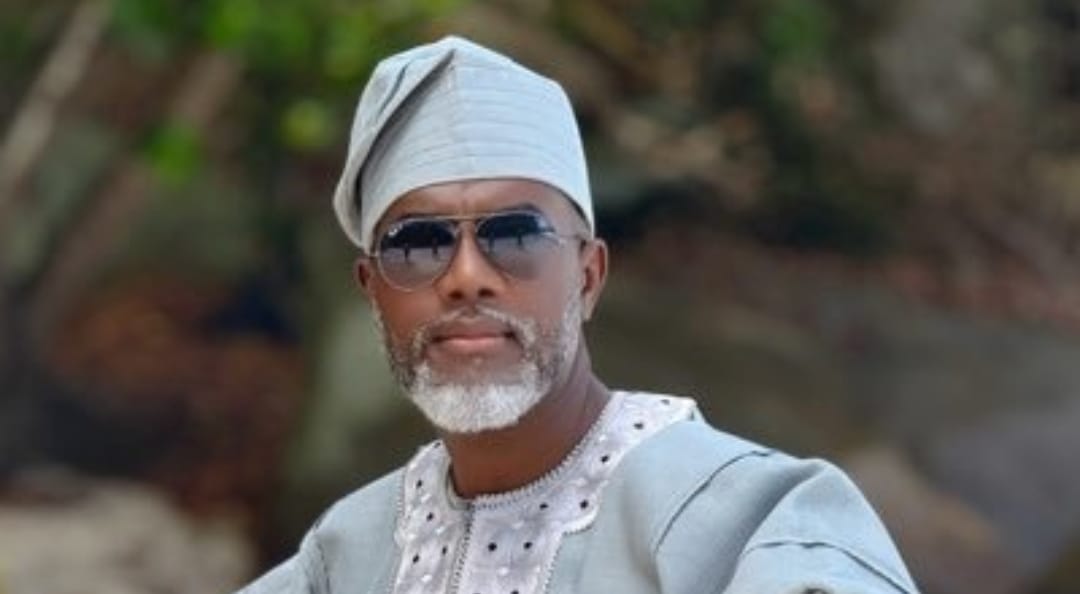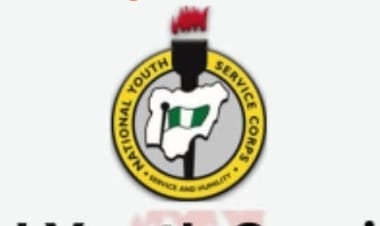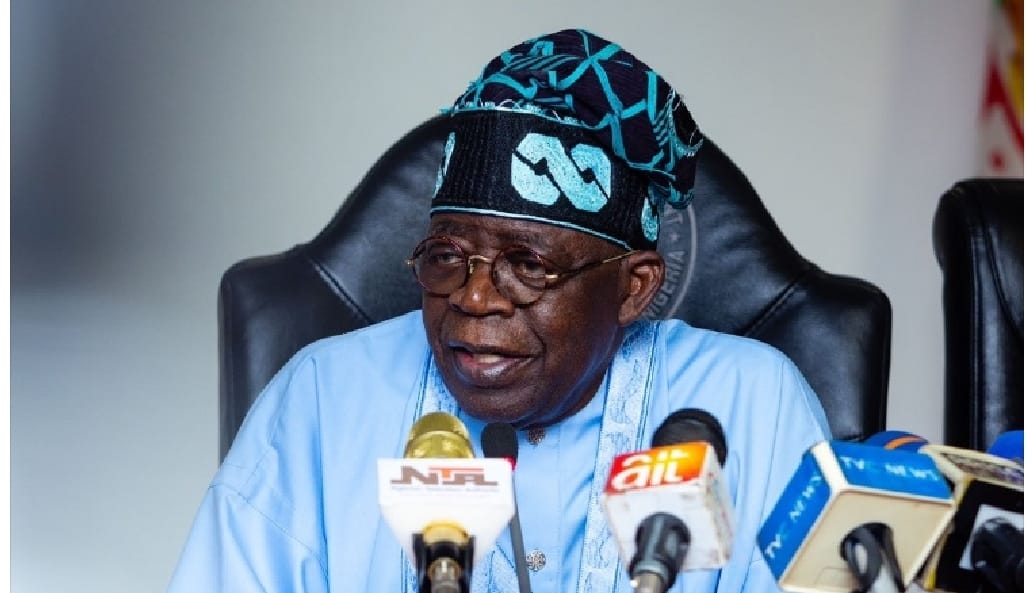The Nigeria Customs Service (NCS) has held a high-level consultation with the Nigerian Shippers’ Council (NSC) on the rollout of the Unified Customs Management System, popularly known as B’Odogwu, as part of its ongoing modernisation drive and trade facilitation efforts.
In a press release issued by the Customs National Public Relations Officer, Abdullahi Maiwada, and shared on the Service’s official X handle on August 19, 2025, it was disclosed that Comptroller-General of Customs, Bashir Adewale Adeniyi (MFR), met with the Executive Secretary of the Shippers’ Council, Dr. Akutah Ukeyima, at the NCS headquarters in Abuja.
The engagement was prompted by concerns raised by freight forwarders and licensed agents over delays and demurrage linked to the rollout of B’Odogwu. The meeting provided an avenue to explore practical solutions aimed at reducing the disruptions experienced by industry operators.
Dr. Ukeyima relayed feedback from stakeholders, highlighting operational issues such as system integration, documentation bottlenecks, and port logistics challenges. He urged swift interventions to minimise financial losses and avoid interruptions in the cargo clearance process.
Responding, the CGC reaffirmed that B’Odogwu remains a flagship initiative under the Customs Modernisation Programme, designed to ensure transparency, efficiency, and global competitiveness in Nigeria’s trade ecosystem. He assured stakeholders that initial teething challenges would be addressed through phased improvements, structured dialogue, and continuous system upgrades.
Both agencies emphasised the importance of sustained collaboration, noting that further consultations with shipping lines, terminal operators, and other industry players will continue. The NCS stressed that while transitional issues are normal in large-scale reforms, measures are being taken to cushion operators from excessive costs, including demurrage.
The Service described B’Odogwu as an indigenous digital platform built to centralise Customs operations, reduce clearance timelines, cut costs, boost compliance, and enhance government revenue. Customs therefore appealed to stakeholders to remain supportive, provide constructive feedback, and partner with the Service in advancing a modern, technology-driven trade environment.

Credit: @CustomsNG via X.








Leave a Reply